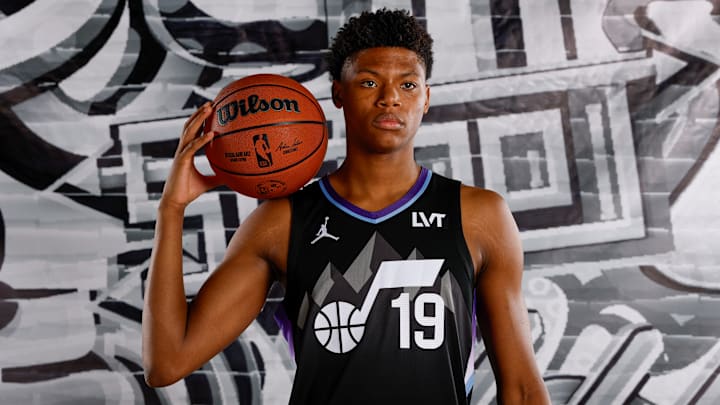Utah Jazz head coach Will Hardy is closing in on a season that will mark the beginning of the period that will define his tenure. The Jazz made the controversial decision to draft Ace Bailey despite rumors that he didn't want to play in Utah, thus gambling on upside above all else.
Whether fair or foul, the job that Hardy does in helping Bailey realize his potential will go a long way toward defining his legacy as Utah's head coach.
The Jazz selected at Bailey at No. 5 overall, one spot ahead of oft-mocked prospect Tre Johnson. It was a bold move given the rumors at play, but there was a clear rationale behind selecting a player with undeniable potential as a scorer.
Standing at 6'8" with a 7'0.5" wingspan, impressive athleticism, and the tools to be a three-level scoring threat, Bailey is an undeniably intriguing talent.
The task that's been placed on Hardy's desk, however, isn't quite as simple as positioning a talented player who has undeniable upside to succeed. He must connect with a player who's beginning his NBA career with a franchise that has more questions than answers after winning 17 games in 2024-25.
If Hardy manages to get Bailey on board with the Jazz's vision and helps him realize his full potential, it would be a feat that not only defines his tenure, but elevates the franchise.
Will Hardy connecting with Ace Bailey will make or break his tenure
Bailey has his flaws, including a tendency to allow defenders to crowd his space and disrupt his rhythm as a scorer. Everything that plagues him is something he has the tools to overcome, however, and his defensive potential is equally as compelling as his offense.
That's led to comparisons to All-NBA and All-Defense honoree Paul George, which the Jazz should be happy to hear and hopeful they can translate to reality.
Upside comparisons rarely ring identically true, of course, and Bailey will become his own player in the NBA. It's a testament to how smooth his game is, however, as well as how imposing his presence can be when he's assertive and in peak form.
That was on display during his freshman season, when Bailey showed clear signs of being able to take over games in multiple phases.
Bailey averaged 17.6 points, 7.2 rebounds, 2.1 offensive boards, 1.3 assists, 1.3 blocks, 1.0 steal, and 1.6 three-point field goals made on .460/.346/.692 shooting. He went off to the tune of 39 points against Indiana, 37 at Northwestern, and 30 on 13-of-15 shooting at Penn State.
There were certainly ebbs and flows, but for a first-year player, Bailey showed a remarkable level of ability against high-major opponents.
In Utah, Bailey will have no shortage of talented teammates, but inexperience will be a steady theme throughout the roster. As such, the opportunity will exist for him to emerge as the go-to scorer for the Jazz—and it's on Hardy to chart the course to that potential destination.
If Hardy manages to bring the best out of Bailey and sell him on a long-term future together, it's safe to assume his time as head coach will be long and fruitful.
